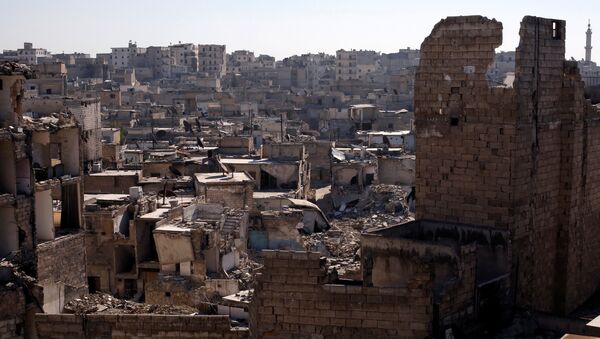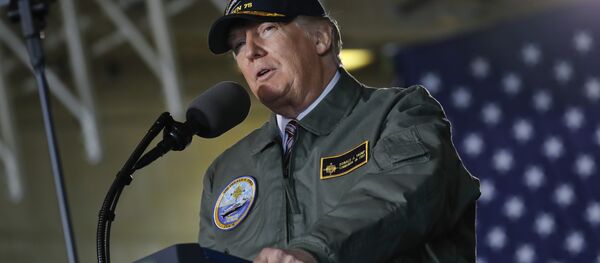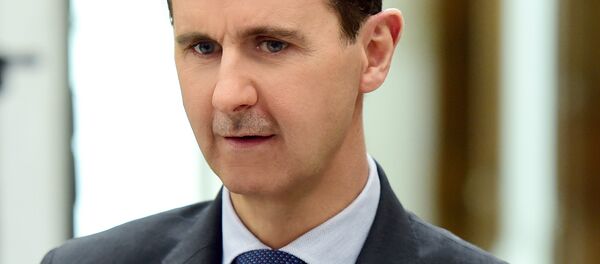This marked a U-turn in Trump’s foreign policy, from the initial promises to focus on domestic policy and cooperate with Moscow in the fight against terrorism.
In an interview with Sputnik Italy, Patrizio Ricci, co-founder of the National Committee for Peace in Syria, shared his thoughts on the situation, suggesting that Trump continues the policy of the previous administration.
“If Trump’s real goal was to remove Assad from power, he would not escalate the situation with a missile attack. It looks like Trump continues the plan of the previous administration to divide Syria into zones of control,” Ricci said.
In order to justify the missile strike, Trump reminded of the chemical attack in Ghouta in 2013 and said that then-President Barack Obama made a mistake not starting an intervention.
“However, we do not have evidence that the Syrian government was involved in those incidents. Moreover, several independent probes showed that Damascus was not responsible. Taking these facts into account, I guess that the US strike in Syria was aimed at gaining a political advantage in the current situation of uncertainty,” he said.
According to Ricci, Trump yielded to pressure from elites in Washington and the European Union.
“This pressure has weakened Trump as a politician. But what is more important is that step by step he has shaken his team, replacing those who once symbolized his approach with those symbolizing his initial rivals. It looks like Trump forgot what he said during his campaign and that his main goal now is to stand out in the international political arena, without any plan and with the use of force,” Ricci pointed out.
“Trump said he would ease or remove sanctions against Russia and would cooperate against terrorism. He didn’t do that. But the core of the problem is that relations between the two countries fall victim to economic, military and geopolitical ambitions,” Ricci noted.
According to him, in the current context, the call for Assad’s removal from power is only a pretext.
"If Assad goes this would mean not only a completely different government in Syria, but Washington’s protectorate over Syria. This is a threat not only to Syria, but also for Russia and China, and even for North Korea. This problem would be global. I think that in a unipolar world there there would be more political pretexts for escalation and the use of military force," Ricci concluded.



